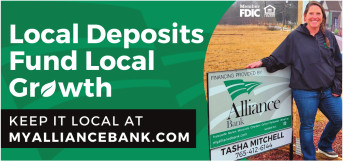“Substance use in Pulaski County continues to rise,” said Judge Crystal Kocher, Pulaski County Superior Court Judge. “Many of these cases involve the use of methamphetamine or heroin. Deaths from substance overdose in Pulaski County continue to increase and we are seeing a profound impact on the families of our community who are left to deal with the aftermath of losing a loved one. In addition, many of these cases involve veterans in our community who are utilizing substances to reintegrate into our community or deal with the pressures of day-to-day life after honorably serving our country.”
Nearly 30 years ago, the first drug court started with a very simple premise: instead of serving as a revolving door for those who have a history of addiction and crime, find ways to leverage the court to keep individuals engaged and be accountable for treatment long enough to be successful. Already, over a million participants and their family members have been served by treatment courts (includes Drug Court and Veterans Courts, along with many others). It is stated by the National Association of Drug Court Professionals (NADCP) that around $13,000 is saved for every treatment court participant and 75 percent of those who complete, don’t reoffend.
Drug courts are designed to intensively engage the participant and the justice system together in order to make consistent and continual daily and weekly contact with the participant; monitor treatment and therapies; to provide support and encouragement when merited as well as accountability if participant is not making good choices. Many who have taken part in these types of intensive programs, have stated that this program/treatment court saved their life. This was their last hope of overcoming addiction.
Today, drug courts and other treatment courts (which are also called Problem Solving Courts) have proven that a combination of accountability and compassion can not only save lives but save valuable resources and reduce criminal justice cost. The Problem-Solving Courts will allow the community to focus on intense accountability and rehabilitation required to address the issue of substance use in those individuals who qualify for this program.
Judge Kocher notes, “These courts are designed to serve individuals with a high risk to reoffend and a high need for treatment. Often, these are individuals who have many years of substance use. This program may not prevent re-offense in the future for every participant; however, we are preparing every participant to receive treatment and identify resources when they are ready to become sober, which frequently happens much faster after participating in a problem solving court. We must continue to work to plant the seed of sobriety and accountability in every individual who comes into our court and our program so it has the opportunity to take hold and make our community a safer place to live and work for everyone.”
Pulaski County Superior Court reports it is “very excited and proud” to be providing this program in the community and to veterans and families in need of support and services. While the court continues to evolve and adjust to drug trends and treatment needs to serve program participants and create a more effective court, organizers are also developing programs and resources to provide to all members of the community who need treatment or assistance with substance use. No other neighboring county has a Problem-Solving Court.
Pulaski County Veterans Treatment Court was honored to be the 100th Problem Solving Court in Indiana to be certified in 2020. For more information about the Pulaski County Veterans Treatment Court program, please visit, http://gov.pulaskionline.org/pulaski-county-veterans-treatment-court/.
Submitted by: Natalie Tucker, PhD
Email: This email address is being protected from spambots. You need JavaScript enabled to view it.







